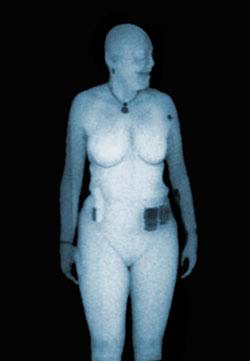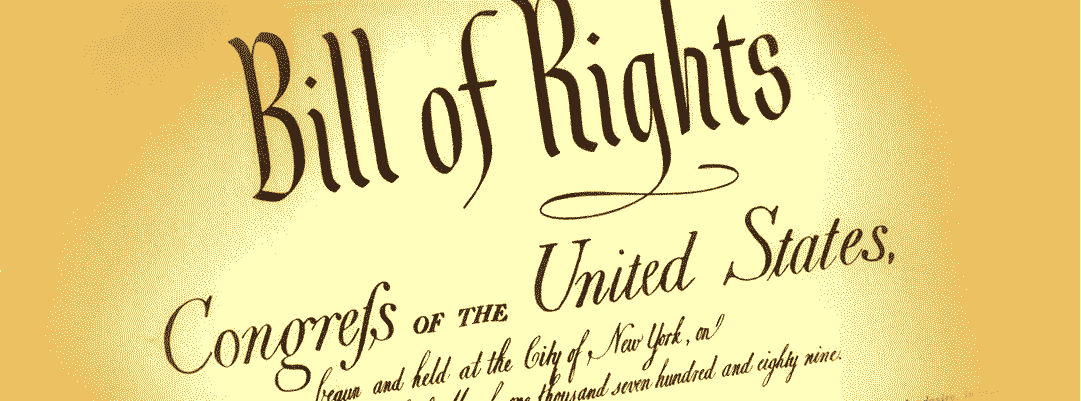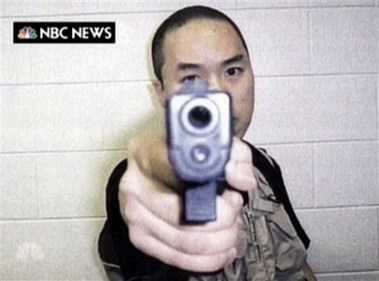Image Source


The sacred rights of mankind are not to be rummaged for, among old parchments, or musty records. They are written, as with a sun beam in the whole volume of human nature, by the hand of the divinity itself; and can never be erased or obscured by mortal power.
Alexander Hamilton, 1775

When the First Congress of the United States drafted Amendments to our newly-birthed Constitution in 1791, I wonder if our Forefathers ever imagined the potential controversy that would surround their Bill of Rights some 200 years later.
Inspired by a grave concern over not allowing the newly established government to "get too big for its britches", our Forefathers wanted to limit potential abuse of citizens' basic rights, privileges and privacy. They felt restrictive clauses should be added, which would help ease the minds of the ex-British, monarchy-worn masses. After much deliberation, they devised the "Bill of Rights" which protect the inalienable rights of each American.
Source: The National Archives Experience
Image Source

When Seung-Hui Cho purchased the handguns that created the deadliest school shooting in U.S. history, he was exercising his First Amendment right to bear arms. But does the Bill of Rights that our founding fathers drafted in the 18th century need to be revised in the 21st? Is our right to bear arms creating needless death and tragedy when exercised by the wrong people? And where do we draw the line? Do we allow some these liberties and not others. Did our forefathers consider these arguments? Were they even able to comprehend the enormity of weapons that would be available a little over 200 years later.
The Virginia Tech massacre received world-wide media coverage and drew intense criticism of U.S. gun laws. According to Wikipedia.com, "The incident prompted immediate changes in Virginia law that had allowed Cho, an individual adjudicated as mentally unsound, to purchase handguns and led federal lawmakers to take up the issue of strengthening the National Instant Criminal Background Check System." Although not a complete solution, a step in the right direction, perhaps. And a step toward reevaluating doctrines dating over 200 years that perhaps just don't seem to fit modern society as we know it any longer.
Source: Wikipedia.com
Image Source

Then there's Don Imus and his "nappy-headed hos" remark, along with a host of other derogatory, racial and sexist comments. Can we say just about anything, no matter who it hurts or offends, all in the name of "freedom of speech?" Where do we draw the line? Is it even possible with a freedom like that? Apparently it is.
Don Imus' remarks earned him a nice little "permanent vacation" from his radio show at CBS. Apparently, the Rutgers University women's basketball team wasn't the first to be on the receiving end of Imus flexing his first amendment right to freedom of speech. Senators Barack Obama and Hillary Clinton were also recipients of his distasteful remarks. Ouch! Wait until Hillary becomes president Don. Then you'll really have some apologizing to do! Guess some things just really aren't all that funny.
Don Imus Gets The Boot
Image Source

Is NOTHING sacred anymore? Not even our own bodies? Isn't this against the Fourth Amendment?
Oh....yeah, the whole terrorism thing. So, in the name of "the war against terror", now we'll have to go through this to try and stay safe? I don't think so. What's my next choice? Oh, I could get patted down? Frankly, I don't care for either option. I'm not fond of some stranger being able to see every nook and cranny like I was some kind of english muffin. The First Amendment does say "secure in their persons.......against unreasonable searches......shall not be violated", doesn't it? Being treated like a common criminal! Gosh, I wonder, what on earth would Mr. Washington think of his precious nation now?